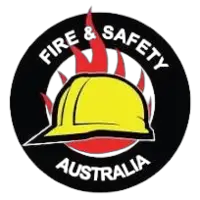
This role has a moderate level of AI exposure. AI can enhance efficiency for some tasks, but this job still relies on human skills and decision-making.
Explore all careersAn Emergency Services Officer (ESO) ensures site safety during emergencies, assesses situations, and arranges medical treatment for casualties.
Get qualified to work as an Emergency Services Officer (ESO) with a course recognised across Australia. Speak to a training provider to learn more.

















In Australia, a full time Emergency Services Officer generally earns $1,500 per week ($78,000 annual salary) before tax. This is a median figure for full-time employees and should be considered a guide only. As you gain more experience you can expect a potentially higher salary than people who are new to the industry.
 Courses.com.au Team
Courses.com.au Team
The emergency response sector has seen a strong increase in employment numbers over the last five years. There are currently 19,700 people working in this field in Australia and many of them specialise as an Emergency Services Officer. Emergency Services Officers may find work across all regions of Australia.
Source: Australian Government Labour Market Insights
 Courses.com.au Team
Courses.com.au Team
If a career as an Emergency Services Officer interests you, consider enrolling in a Diploma of Paramedical Science. This course will prepare you for an emergency response role with subjects covering basic life support and transport of patients to a medical facility.
 Courses.com.au Team
Courses.com.au Team
Browse occupations related to Emergency Services Officer (ESO)



Enrolling in Emergency Services Officer (ESO) courses in New South Wales presents a vital pathway for individuals aspiring to contribute to community safety and healthcare. The ESO role is critical, offering support during emergencies, and ensuring that effective measures are in place to care for those in need. With a variety of courses available, prospective students can develop the necessary skills and knowledge to function effectively in this challenging yet rewarding field. Training is provided by reputable organisations including ISMT, SDS, and CERT Training, amongst others.
The state of New South Wales is home to numerous training providers, such as O'Halloran Fire & Medical and Skills Network, who deliver specialised courses like the Diploma of Emergency Health Care and training to lead an Emergency Control Organisation. This expansive selection allows students the flexibility to choose training options that best suit their career aspirations while ensuring compliance with industry standards, which is critical in a domain where lives may depend on prompt and effective action. Moreover, students can engage in courses focused on first aid, rescue operations, and managing workplace emergencies, enabling them to excel in various roles.
In addition to the core competencies acquired through these Emergency Services Officer (ESO) courses in New South Wales, students may also explore related career paths such as the Emergency Medical Technician or Ambulance Service Paramedic. The skills learned are not only applicable in emergency services roles but also extend to diverse fields including Healthcare courses and Ambulance and Paramedic services, further broadening the career prospects for graduates.
New South Wales is known for its diverse landscapes, from urban centres to coastal regions, making the role of an Emergency Services Officer (ESO) paramount in ensuring community safety. Institutions such as Wollongong First Aid and THS Training are poised to provide vital skills that are tailor-made for these unique environments, ensuring first responders are equipped to handle emergencies, be it in bustling city settings or remote locations. This direct alignment with local demand for trained professionals makes the availability of quality training providers essential.
Exploring the career opportunities arising from successful completion of Emergency Services Officer (ESO) courses in New South Wales opens doors to fulfil exhilarating roles such as the Critical Care Paramedic or Flight Paramedic. Graduates will find their skills in high demand in both urban and rural settings, along with opportunities to specialise in various emergency response modalities, including industrial and aviation contexts. As such, individuals pursuing this career path can look forward to making significant contributions to their communities while enjoying the benefits of varied and dynamic work environments.